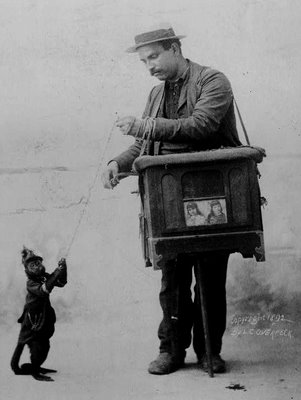LIE TO ME WITH A BRITISH ACCENT
Americans can genuflect with the best of them when the mere
mention of "Downton Abbey" or some other aristocratic tableau is
brought to bear. There is something so soothing and elevating and downright
dignified about all those well-scrubbed and well-heeled and well-controlled
denizens of the social stratosphere.
And although I have sworn off the opiod of "Downton
Abbey" in its latest seasonal incarnation, still I find myself longing for
that sense of dignity when listening to the political hullabaloo here in the United
States.
If there were ever a man better suited to everything the
European aristocracy might look down upon, I can't think of one better than
Donald Trump. Not only is he obscenely rich, but he manages to fold in a
stupidity that is truly mesmerizing. Oh, and did I mention loud? Donald Trump
is unabashedly loud in stark contrast to the almost-Japanese reticence of the
upper-crust Brits or French.
The man is an embarrassment to the country I belong to.
Somehow I imagine the French as being particularly catty and I can't say that I
blame them. On the other hand, it was the French who managed to build the
500,000 square feet of Versailles
with precisely zero toilets as we know them today. The smell was pretty potent,
much as Donald Trump's brickbats are.
Where is the dignity and careful consideration that hunger
and education and healthcare and employment and the endless munificence of war deserve
in my wishful mind? I don't give a damn where anyone goes or doesn't go to
church: Aren't there issues deserving of Lord Grantham's fictitious gravitas?
I think there are.
But I am also somewhat schizophrenic. On the one hand, a
little suave certainty, delivered in measured tones, would go a long way to
speaking to the whole nation as opposed to addressing some raucous constituency
that is fed up with the Lord Grantham wannabes of the past. On the other hand,
the ingrown blindness of a lineage that rarely sees beyond its cosseted being has
a kind of stupidity that is likewise galling: Scratch the surface and reveal the
incestuous politesse that rides roughshod over honest difficulties.
In the midst of the blitzkrieg that is Donald Trump, there
is a part of me that loves "Cinderella" and other fairy tales that
live happily ever after and have a certain quiet dignity and kindness to them.
The tones and notes of the 'good ol' boys' in their good ol' ties calls out to
me. And to remain aboveboard, yes, there still is a part of me that thinks anyone
with a British accent is, ipso facto, smarter than I am. True, George Orwell,
that pin-wielding gadfly in the balloon factory, is a hero of mind, yet even he
knew the fine art of five-course silverware. How else could he be so effective?
Is there a middle ground in all of this -- some dignified
person not given to bouts of mindless volume on the one hand or consumed by an
underlying insistence that "l'état,
c'est moi" on the other?
I considered
suggesting we give the colonies back to the Brits, but that seems a harsh
possibility. So perhaps the answer lies in borrowing someone like Michael
Kitchen, an actor whose TV persona as Detective Chief
Superintendent Christopher Foyle in "Foyle's War" was credible and
quiet and firm ... and could think.
Yes, I think he would do quite nicely.
I just want someone to lie to me with a
British accent.






































